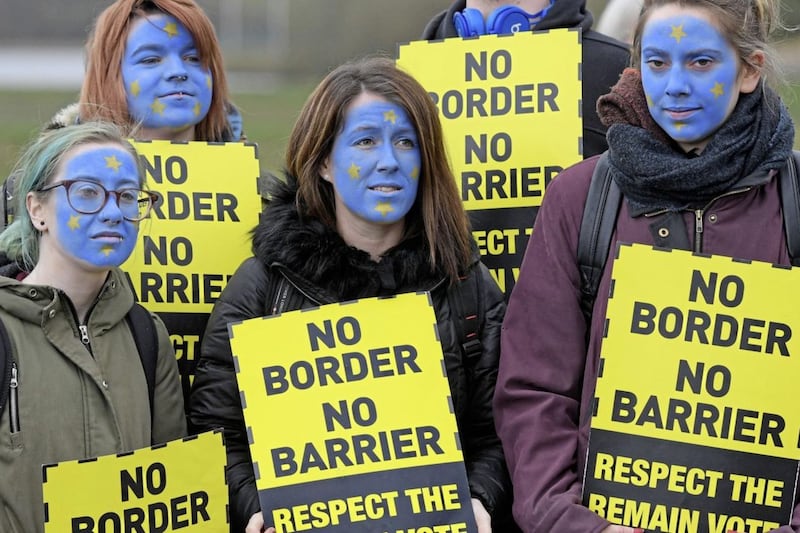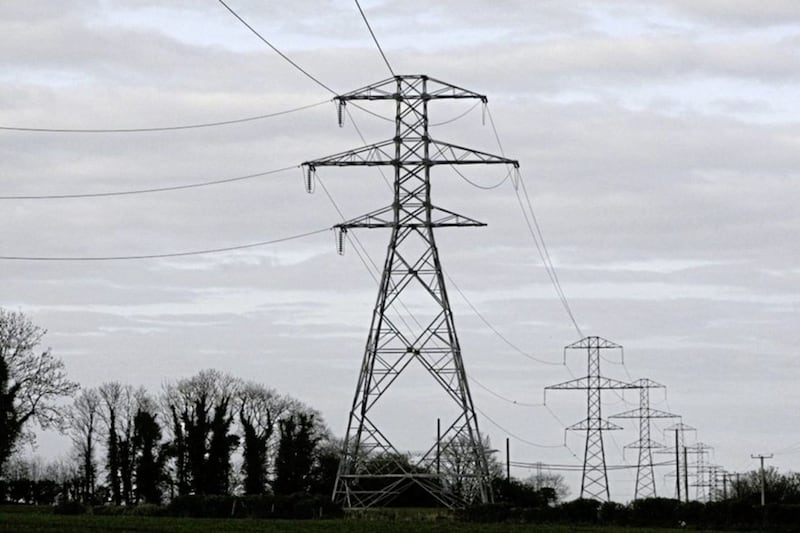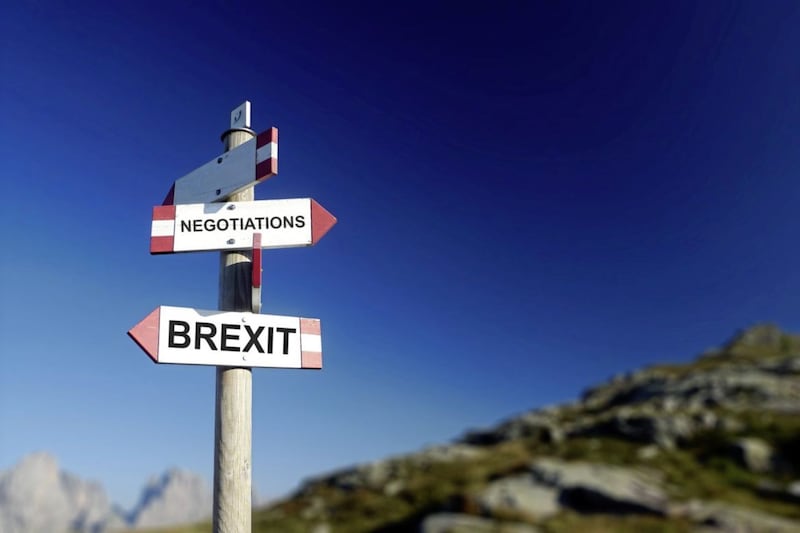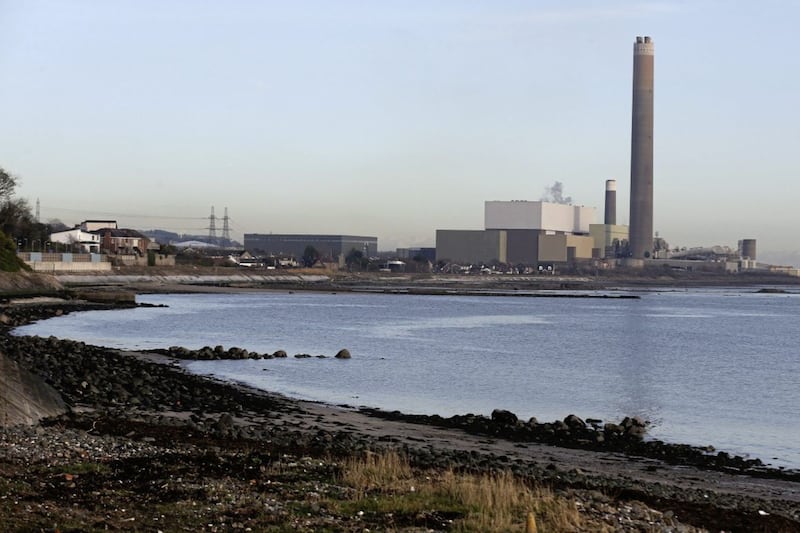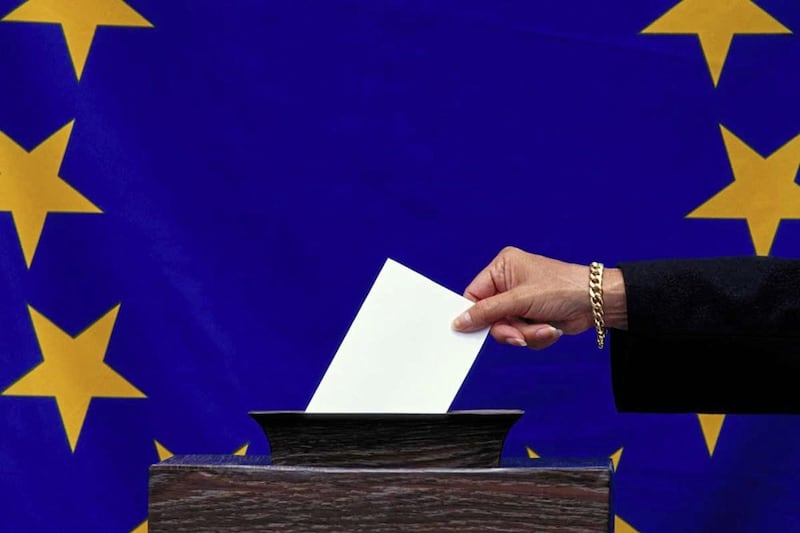A few weeks ago on UTV’s View from Stormont I was invited to take credit for a forecast that I’ve been consistently making which now looks as if it is coming to pass, namely that when Brexit finally happens it will be accompanied by a border down the Irish Sea.
Resisting the temptation to pat myself on the back, I said that in the course of a long journalistic career, I was bound to get one or two things right. It raised a bit of laugh in the studio which is rare enough in a political/economic debate.
The episode got me thinking though about why I - and of course I wasn’t alone in this - had seemingly managed to make an accurate prediction but also why the same scenario wasn’t so apparent to a number of others and whether there were any lessons in all of this for business practice.
Brexit has taken so many twists and turns that many people have given up trying to see where it is going. And indeed in the short term it is impossible to say what will happen next. But if you stand back and strip away the complexity, you are left with some forces which are so powerful they are bound to hold sway no matter what else happens.
For all the talk of Brussels having to meet UK demands because the French needed to sell their cheese, the Italians their Prosecco and the Germans their cars, a deal was always far more important for London than it was for any other single European country. The reason is blindingly clear. The UK sells far more to the EU as a whole than any of the 27 sells individually to the UK. If London had been able to establish separate understandings with Berlin or Paris or Rome, the outcome might have been different. But that was never a realistic option. The EU 27 were content to let Brussels act on their behalf.
In any business deal, a firm has to recognise the strength or weakness of its negotiating position and act accordingly. It’s not wise to overplay your hand. If that seems obvious to any business executive, it was apparently not so clear to some politicians.
Another insight I had was to point out that the DUP would ultimately be let down by the Conservatives. That wasn’t just cynicism on my part. I took the view that at some point the interests of the two parties, which looked firmly aligned, would separate with catastrophic consequences for the Northern Ireland party. I can understand though why the DUP believed they would retain the support of the Tories. Their votes were important to a government operating without a proper working majority. And Boris Johnson did seem to have a genuinely warm relationship with DUP leaders.
But the DUP did not pay enough heed to what the 19th century British statesman Lord Palmerston said: “We have no eternal allies…. Our interests are eternal and perpetual, and those interests it is our duty to follow”.
Once Boris Johnson recognised that a deal was in reach with the EU which offered scope to strike trade agreements with other countries as long as he dropped his opposition to a customs border down the Irish Sea, he didn’t baulk at leaving the DUP in the lurch. Even the party’s ally, the European Research Group, was ready to abandon them.
Trust plays a crucial part in business negotiations. Not every understanding is enshrined in a contract. A supplier will continue to stick by a long term customer and vice versa even if some more money or savings can be made elsewhere. But there are limits. Few if any businesses will harm their prospects by choosing long term to receive less money or spend more money that they have to. It’s wise to keep that in the back of your mind.
For what it’s worth, I never believed that DUP votes would prove essential to the Conservatives on crunch votes. It rested on an assumption that a number of Labour MPs, especially those in Brexit supporting constituencies, would back Theresa May’s original withdrawal agreement or at least abstain.
Scarcely any did, which surprised me but in hindsight shouldn’t. They knew that the then Prime Minister was never going to get enough support to get her deal across the line. Why risk criticism from within their own party to back a game that was always going to be lost.
Instead, they only acted after two things happened: a deal which for the very first time looked as if it would command majority support and a mood of weariness among the electorate about all things Brexit which was conducive to acceptance of just about any arrangement which would end three years of uncertainty.
The world backs a winner often because it’s thought to be a winner. If a market has a reputation for attracting more buyers and sellers than its rivals, its attendances will swell guaranteeing further expansion. Success breeds success. And it works in reverse. Once an airline or tour firm is thought to be at risk, travellers will desert it, making the demise much more likely. In business, as in politics, people like to go with the flow.
A last word. The PM’s deal hasn’t been passed by the House of Commons and the forthcoming election may yet usher in a new form of stalemate. But my hunch is that Brexit will win through - along with that border down the Irish Sea.
:: Jamie Delargy (delargyco@btinternet.com) is a freelance business broadcaster and commentator.
:: Next week: Brendan Mulgrew




